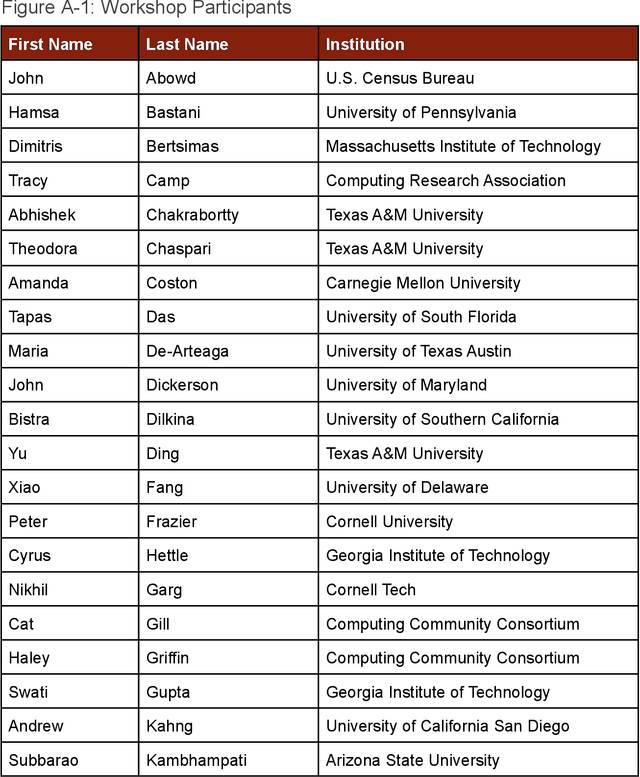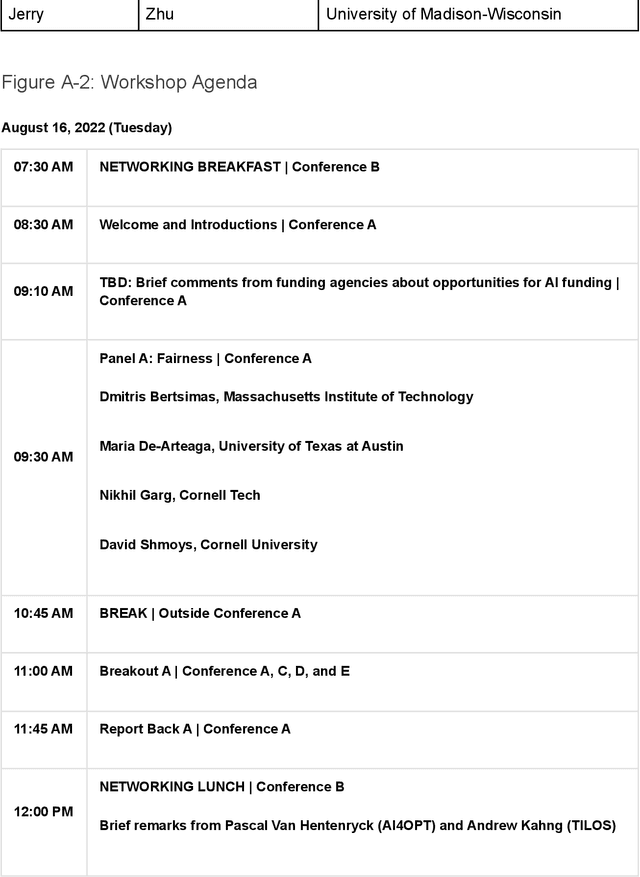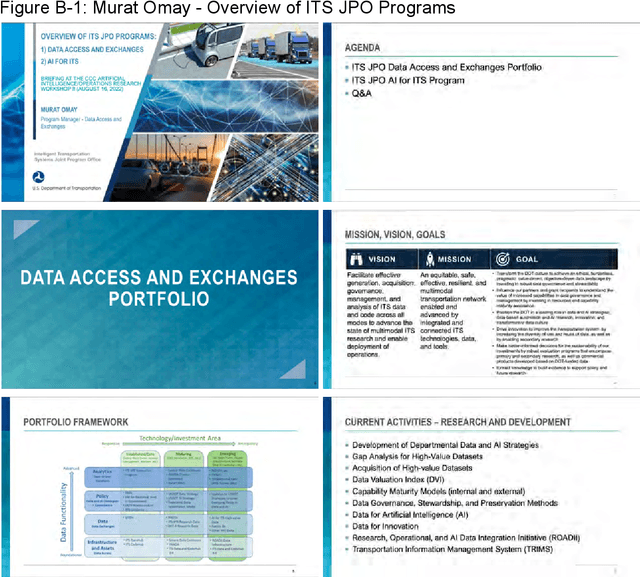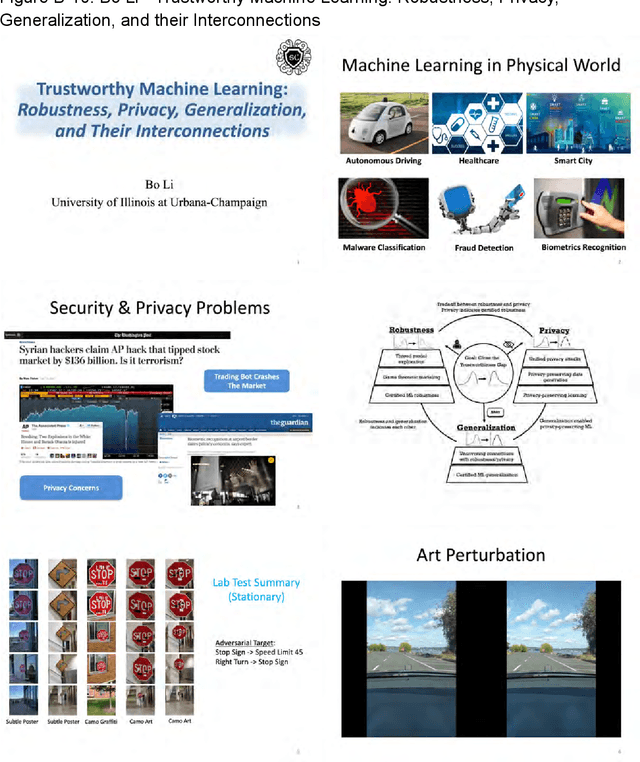Ramayya Krishnan
ML Compass: Navigating Capability, Cost, and Compliance Trade-offs in AI Model Deployment
Dec 29, 2025Abstract:We study how organizations should select among competing AI models when user utility, deployment costs, and compliance requirements jointly matter. Widely used capability leaderboards do not translate directly into deployment decisions, creating a capability -- deployment gap; to bridge it, we take a systems-level view in which model choice is tied to application outcomes, operating constraints, and a capability-cost frontier. We develop ML Compass, a framework that treats model selection as constrained optimization over this frontier. On the theory side, we characterize optimal model configurations under a parametric frontier and show a three-regime structure in optimal internal measures: some dimensions are pinned at compliance minima, some saturate at maximum levels, and the remainder take interior values governed by frontier curvature. We derive comparative statics that quantify how budget changes, regulatory tightening, and technological progress propagate across capability dimensions and costs. On the implementation side, we propose a pipeline that (i) extracts low-dimensional internal measures from heterogeneous model descriptors, (ii) estimates an empirical frontier from capability and cost data, (iii) learns a user- or task-specific utility function from interaction outcome data, and (iv) uses these components to target capability-cost profiles and recommend models. We validate ML Compass with two case studies: a general-purpose conversational setting using the PRISM Alignment dataset and a healthcare setting using a custom dataset we build using HealthBench. In both environments, our framework produces recommendations -- and deployment-aware leaderboards based on predicted deployment value under constraints -- that can differ materially from capability-only rankings, and clarifies how trade-offs between capability, cost, and safety shape optimal model choice.
Beyond Single-Turn: A Survey on Multi-Turn Interactions with Large Language Models
Apr 08, 2025Abstract:Recent advancements in large language models (LLMs) have revolutionized their ability to handle single-turn tasks, yet real-world applications demand sophisticated multi-turn interactions. This survey provides a comprehensive review of recent advancements in evaluating and enhancing multi-turn interactions in LLMs. Focusing on task-specific scenarios, from instruction following in diverse domains such as math and coding to complex conversational engagements in roleplay, healthcare, education, and even adversarial jailbreak settings, we systematically examine the challenges of maintaining context, coherence, fairness, and responsiveness over prolonged dialogues. The paper organizes current benchmarks and datasets into coherent categories that reflect the evolving landscape of multi-turn dialogue evaluation. In addition, we review a range of enhancement methodologies under multi-turn settings, including model-centric strategies (contextual learning, supervised fine-tuning, reinforcement learning, and new architectures), external integration approaches (memory-augmented, retrieval-based methods, and knowledge graph), and agent-based techniques for collaborative interactions. Finally, we discuss open challenges and propose future directions for research to further advance the robustness and effectiveness of multi-turn interactions in LLMs. Related resources and papers are available at https://github.com/yubol-cmu/Awesome-Multi-Turn-LLMs.
Firm or Fickle? Evaluating Large Language Models Consistency in Sequential Interactions
Mar 28, 2025



Abstract:Large Language Models (LLMs) have shown remarkable capabilities across various tasks, but their deployment in high-stake domains requires consistent performance across multiple interaction rounds. This paper introduces a comprehensive framework for evaluating and improving LLM response consistency, making three key contributions. First, we propose a novel Position-Weighted Consistency (PWC) score that captures both the importance of early-stage stability and recovery patterns in multi-turn interactions. Second, we present a carefully curated benchmark dataset spanning diverse domains and difficulty levels, specifically designed to evaluate LLM consistency under various challenging follow-up scenarios. Third, we introduce Confidence-Aware Response Generation (CARG), a framework that significantly improves response stability by incorporating model confidence signals into the generation process. Empirical results demonstrate that CARG significantly improves response stability without sacrificing accuracy, underscoring its potential for reliable LLM deployment in critical applications.
Reliability, Resilience and Human Factors Engineering for Trustworthy AI Systems
Nov 13, 2024Abstract:As AI systems become integral to critical operations across industries and services, ensuring their reliability and safety is essential. We offer a framework that integrates established reliability and resilience engineering principles into AI systems. By applying traditional metrics such as failure rate and Mean Time Between Failures (MTBF) along with resilience engineering and human reliability analysis, we propose an integrate framework to manage AI system performance, and prevent or efficiently recover from failures. Our work adapts classical engineering methods to AI systems and outlines a research agenda for future technical studies. We apply our framework to a real-world AI system, using system status data from platforms such as openAI, to demonstrate its practical applicability. This framework aligns with emerging global standards and regulatory frameworks, providing a methodology to enhance the trustworthiness of AI systems. Our aim is to guide policy, regulation, and the development of reliable, safe, and adaptable AI technologies capable of consistent performance in real-world environments.
Artificial Intelligence/Operations Research Workshop 2 Report Out
Apr 10, 2023



Abstract:This workshop Report Out focuses on the foundational elements of trustworthy AI and OR technology, and how to ensure all AI and OR systems implement these elements in their system designs. Four sessions on various topics within Trustworthy AI were held, these being Fairness, Explainable AI/Causality, Robustness/Privacy, and Human Alignment and Human-Computer Interaction. Following discussions of each of these topics, workshop participants also brainstormed challenge problems which require the collaboration of AI and OR researchers and will result in the integration of basic techniques from both fields to eventually benefit societal needs.
Changes in Commuter Behavior from COVID-19 Lockdowns in the Atlanta Metropolitan Area
Feb 27, 2023



Abstract:This paper analyzes the impact of COVID-19 related lockdowns in the Atlanta, Georgia metropolitan area by examining commuter patterns in three periods: prior to, during, and after the pandemic lockdown. A cellular phone location dataset is utilized in a novel pipeline to infer the home and work locations of thousands of users from the Density-based Spatial Clustering of Applications with Noise (DBSCAN) algorithm. The coordinates derived from the clustering are put through a reverse geocoding process from which word embeddings are extracted in order to categorize the industry of each work place based on the workplace name and Point of Interest (POI) mapping. Frequencies of commute from home locations to work locations are analyzed in and across all three time periods. Public health and economic factors are discussed to explain potential reasons for the observed changes in commuter patterns.
 Add to Chrome
Add to Chrome Add to Firefox
Add to Firefox Add to Edge
Add to Edge